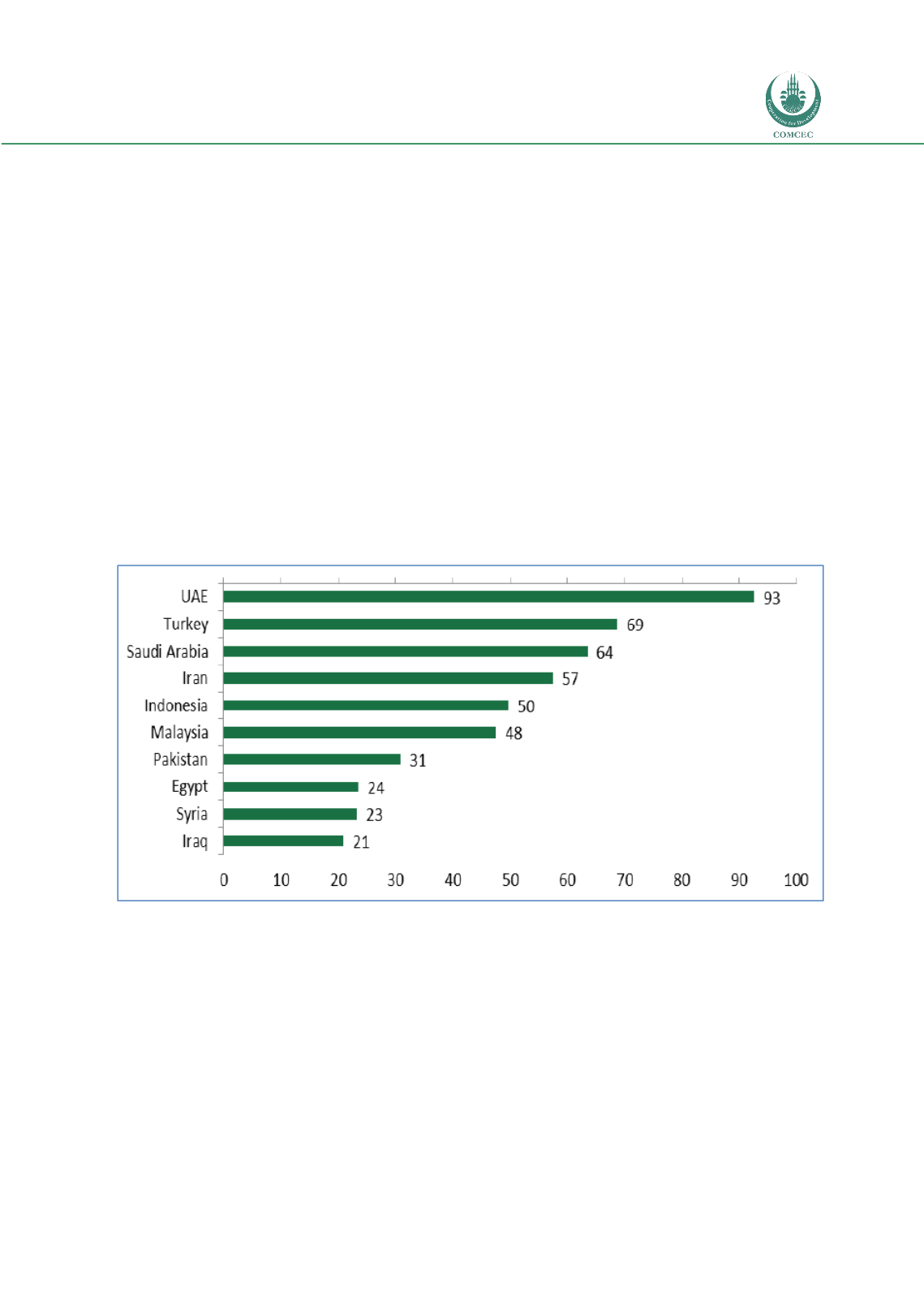

DRAFT
Improving the SMEs Access to Trade Finance
in the OIC Member States
63
As noted earlier, the growth and impact of Islamic Trade Finance will correlate directly to the
evolution and broader leveraging of Islamic Finance practices, the growth of Islamic Finance
assets and the wider – and more coordinated/aligned governance of Islamic Finance practice
across OIC Member States, and across other jurisdictions where such activity has attracted
significant interest.
“…the establishment of International Islamic Trade Financing Corporation (ITFC) in
2008 has catalyzed increased trade financing interventions. The cumulative net trade
financing approvals for OIC member states has increased by 63 percent from $ 24.4
billion in 2005 to $ 39.9 billion in 2011.”
Source: Arab News, 2013
While there is significant focus globally on the opportunities linked to involvement and
engagement with global supply chains, it has been observed that OIC Member States have
perhaps a more compelling and immediately achievable opportunity in linking to regional
supply chains and value chains, in line with the OIC intention of promoting greater and more
diverse trade flow among Member States.
Figure 23: Leading Actors in Intra-OIC Trade
Source: COMCEC/SESRIC
Research shows that most value chains still tend to be regional, despite growing
internationalization. Baldwin has called this Factory Asia, Factory North America, and
Factory Europe. Some of the inter-regional FTAs currently under negotiation such as
the Trans Pacific Partnership (TPP) or the EU-US FTA covers the areas where Global
Value Chains are concentrated. Such agreements might lock out non-parties and
prevent their participation into existing value chains located within those regions.
Growing demand in Organization of Islamic Cooperation (OIC) member countries make
these markets lucrative for other OIC member countries. These markets can also be
friendlier for producers based in OIC member countries in particular for small and

















